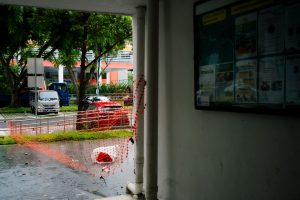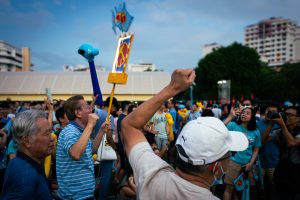RICE does not endorse any political party in Singapore. Refer to our GE2025 content coverage policy for details.
Top image: YouTube Screengrab / CNA
The live election roundtables Q&As hosted by Mediacorp last Sunday (April 27th) and last night (April 29th) could have been emails. I feel qualified to say that because I’ve been part of far too many meetings that could have been WhatsApp messages.
These Q&A sessions—one in English and one in Mandarin—were the only two live televised interparty forums for GE2025.
ADVERTISEMENT
Sunday’s Singapore Votes – The Roundtable brought together representatives from the People’s Action Party (PAP), Workers’ Party (WP), Progress Singapore Party (PSP), Red Dot United (RDU), and the People’s Alliance for Reform (PAR) to discuss key issues affecting Singaporeans.
If you were expecting lively political debates reminiscent of the one in GE2020, you would be sorely disappointed.
If you were expecting a roundtable format (a collaborative exchange of ideas and perspectives)… you would be sorely disappointed as well.
Let’s talk about the Sunday show first. Minister for Transport Chee Hong Tat and his iPad Pro represented the PAP. RDU sent their secretary-general, Ravi Philemon. PAR, too, chose to send its leader, Lim Tean (or maybe he just chose himself). Notably, PSP and WP sent first-time candidates, Stephanie Tan and Michael Thng, respectively.
I guess the participants were technically sitting around a table. And it was indeed round. But the hallmarks of the typical roundtable discussion format—open discussion, with equal chance to contribute—were absent.
For one, there were no back-and-forth discussions. Nor was there much interaction among candidates.
Instead, moderator Otelli Edwards asked the candidates prepared questions on geopolitics and the economy, immigration and jobs, and the cost of living. Subject matter experts then asked each candidate a follow-up question.
With the brief answers, though, owing to the time constraints, it felt like an unsatisfying email thread with no real resolution.
Another point of contention in public conversation was how skewed the speaking time was in favour of the incumbent party.
Each opposition candidate had one minute to answer each question, in order from the smallest to the largest number of candidates fielded. Meanwhile, Chee had four minutes per question and got to answer last each round.
To conclude the programme, each candidate delivered their closing remarks. Each opposition candidate had two minutes, while Chee had eight.
The difference in allocated time might have made more sense if it were a true debate, with each opposition candidate firing questions at the incumbent. But in a Q&A format, did the incumbent party really need that much more time?
But perhaps the programme’s undoing was the fact that each candidate had already received the questions an hour before the live broadcast. And, as such, they came armed with cheat sheets and pre-written answers.
The Mandarin instalment, Singapore Votes 2025: The Political Forum, which aired last night wasn’t any better. It featured PAP’s Sim Ann, WP’s Eileen Chong, PSP’s Hazel Poa, PAR’s Michael Fang, and RDU’s Pang Heng Chuan, answering effectively the same questions from Sunday’s roundtable.
Time allocation here was similarly skewed too, with each opposition party getting one minute for each question and the PAP getting four minutes. For the subsequent expert Q&As and the closing remarks, opposition parties spoke for one minute and 30 seconds, while Sim Ann spoke for six minutes. Someone must have listened to the feedback after the first roundtable.
ADVERTISEMENT
While the forum featured a Q&A with an expert that seemed a little more off the cuff, a large chunk of the programme featured candidates reading from prepared notes.
The beauty of unscripted political debates is seeing each candidate think on their feet. We see their true potential, without the security blanket of a script.
The topics raised—geopolitics, immigration, and cost of living—are important considerations for voters. We would have valued a chance to see the candidates display their knowledge and political maturity. These are the things that truly matter to voters—more than who’s better at reciting talking points.
Recall the televised debate in GE2020, where WP’s Dr Jamus Lim emerged as the star of the night—no doubt a factor that helped him and his teammates secure a historic win in Sengkang GRC.
But, instead of an off-the-cuff discussion, viewers got stilted Q&As this time around—not at all what we wanted. Which is a shame, considering the impressive calibre of the candidates some parties sent.
The candidates deserved the chance to engage meaningfully with one another on the urgent, pertinent issues that matter. We, the voters, deserved the chance to judge who made the strongest case for their party in the heat of discussions.
And we should have seen something we wouldn’t get anywhere else. If we wanted rehearsed talking points on current issues, we could’ve gone to rallies or read manifestos.
Disappointing formats aside, some candidates still managed to shine, while others fell flat. So who really won and lost?
Winner: The Advertisers
After paying S$20 for Netflix each month, I thought I would never have to sit through another TV ad. I was wrong.
I didn’t get to see Michael Thng and Minister Chee locking horns. But I did find out that Dulux Ambiance All AirClean paint helps to get rid of formaldehyde in the air.
Losers: Mediacorp
Sorry guys. We know you probably had to work overtime to make this roundtable happen. But the debate in GE2020 was hard to top. All you had to do was keep the exact same format, and you wouldn’t have needed to field all those angry comments on YouTube and Facebook.
Winner: Stephanie Tan
The odds were already stacked against Tan. She and Thng were the two youngest and greenest roundtable candidates (they’re both 37) on hand. She also had only 60 seconds to provide coherent answers to complex questions. To make matters worse, she probably spent a good chunk of those 60 seconds clearing her throat.
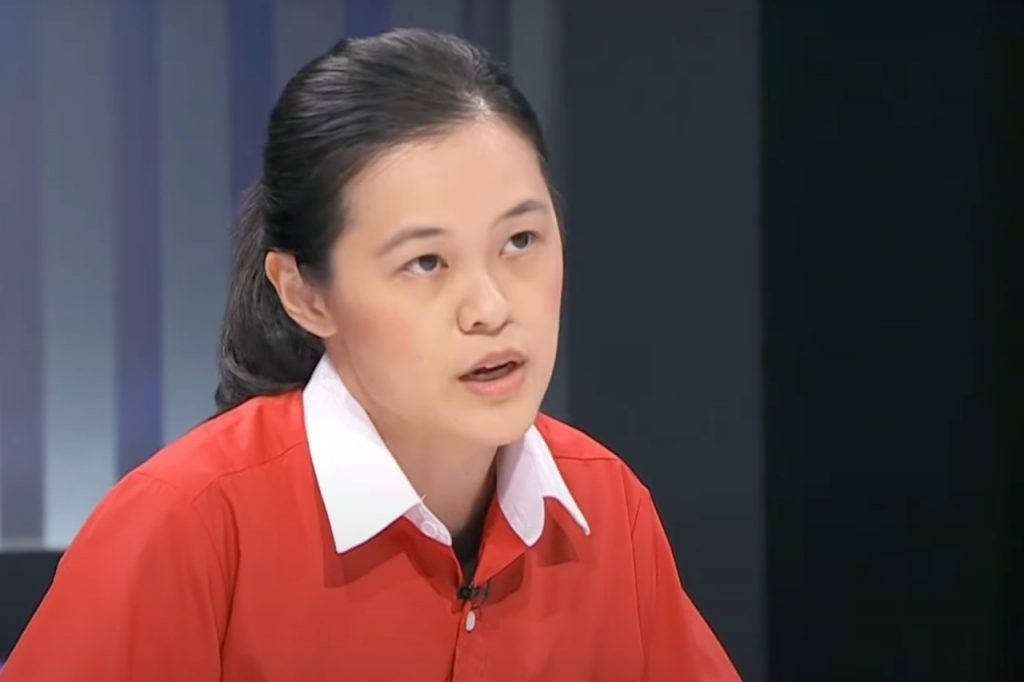
Nevertheless, she kept her cool and managed to eloquently explain several of PSP’s key proposals, such as “national guidelines” on rent increases for commercial properties, tighter controls on Employment Pass holders, and the Affordable Homes Scheme. She came off as someone who diligently does her homework—the hard carry in a group project assignment.
ADVERTISEMENT
Someone give her some pipagao and a pat on the back for a job well done.
Winner: Michael Thng
Thng, too, made an impressive outing with clear, level-headed answers that you don’t have to be from Harvard to understand. At one point, Associate Professor in Practice Terence Ho, from the Singapore University of Social Sciences, asked Thng to identify the most pressing among WP’s policies to address the cost of key services like utilities, healthcare, and transportation.
Thng threw the question back at Prof Ho in the most polite way possible, explaining that these costs are “equally important and differently important” to each individual.
Refreshing to see a candidate deviate from the script just a little and push back against an expert’s question. Thng just needs to remember to wait for a bit and let Otelli cue him in before answering.
Winner: Ng Chee Meng
The NTUC Income-Allianz saga is back in the news again, and former MP Ng Chee Meng is in the hot seat for his role in the matter.
Former NTUC Income CEO Tan Suee Chieh recently wrote an open letter to Jalan Kayu SMC residents—where Ng is contesting—urging them to hold Ng accountable for his endorsement of the doomed sale.
Ng addressed the controversy at a PAP rally on Sunday night, which coincided with the roundtable.
Did the roundtable help take the heat off Ng? Perhaps. But Tan is back with a new open letter about the whole saga, this time addressed to the Chairman of the Monetary Authority of Singapore (MAS), DPM Gan Kim Yong.
Consolation prize: Lim Tean and Ravi Philemon
As political veterans, we expected Lim and Philemon to hold their own, and they kinda, sorta did.
They just had a few flubs. Lim, for example, ran out of speaking time a couple of times. And Philemon was the only candidate to run afoul of the programme’s fact-checker. He had questioned why foreign wives of citizens often only get long-term visit passes (LTVP) instead of citizenship or permanent resident (PR) status. Moderator Edwards clarified that LTVPs aren’t a prerequisite for PR or citizenship.
Winner(?): Chee Hong Tat
With a lot more time for him to speak without interruption, Chee had already won even before the programme started.
With more time comes greater pressure to fill that time with substance. Chee started the roundtable steadily enough, explaining how the PAP government has been tackling the global trade war.
When the topic shifted to immigration and cost of living concerns, however, he made use of his additional response time each round to criticise the opposition’s minimum wage proposals, the PSP’s alternative housing proposal, and the WP’s proposal to rely more on corporate taxes.
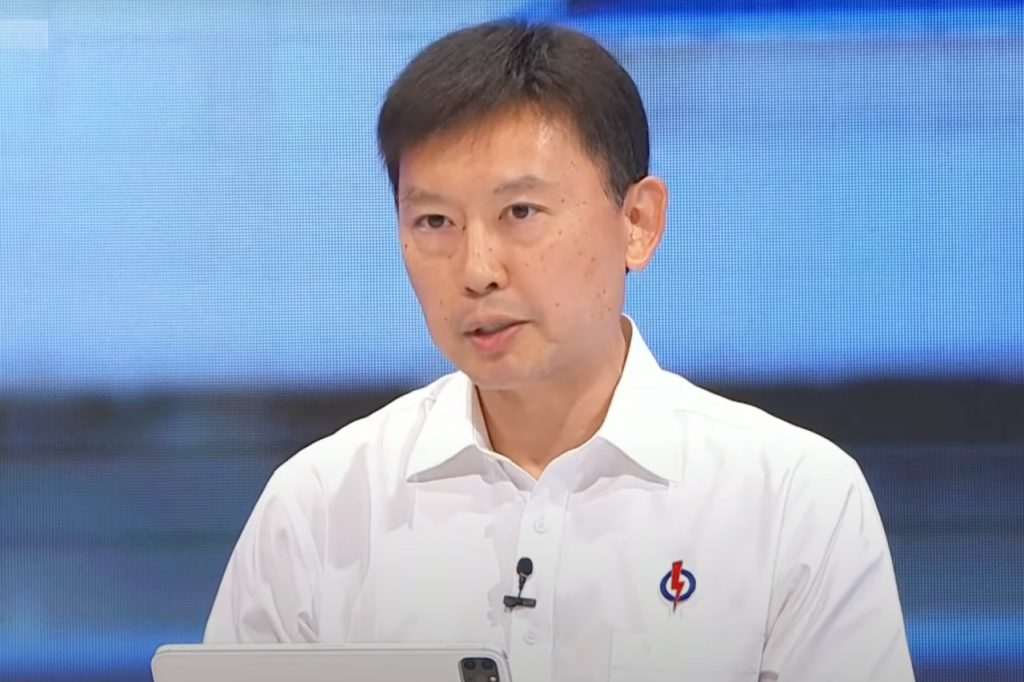
The issue here is that Chee went last each round, so none of the other parties had the time or the opportunity to rebut his potshots. Auto victory.
Towards the end, during his eight-minute closing remarks, he couldn’t resist taking aim at WP again. He attacked the efficacy of WP’s proposals, their positions on policy issues, and accused the party of claiming credit for PAP policies.
All’s fair in the game of love and war. He was well within his rights to use his time as he saw fit—and I’m pretty sure any opposition member with eight minutes to spare would show the incumbent the same kindness.
But … the optics aren’t great. He’d already been given disproportionately more time to speak. Taking jabs at your political opponents sitting across from you when you know they can’t respond is not a good look. Sure, he won in the end. But at what cost?
Winner: Sim Ann
Sim Ann might have rocked up to the Mandarin forum with sheaves of notes, but she didn’t seem to actually need them.
Sure, the odds were stacked in her favour since she had markedly more time. Fact is, she made light work of the questions, speaking with the calm, authoritative energy of a secondary school principal.
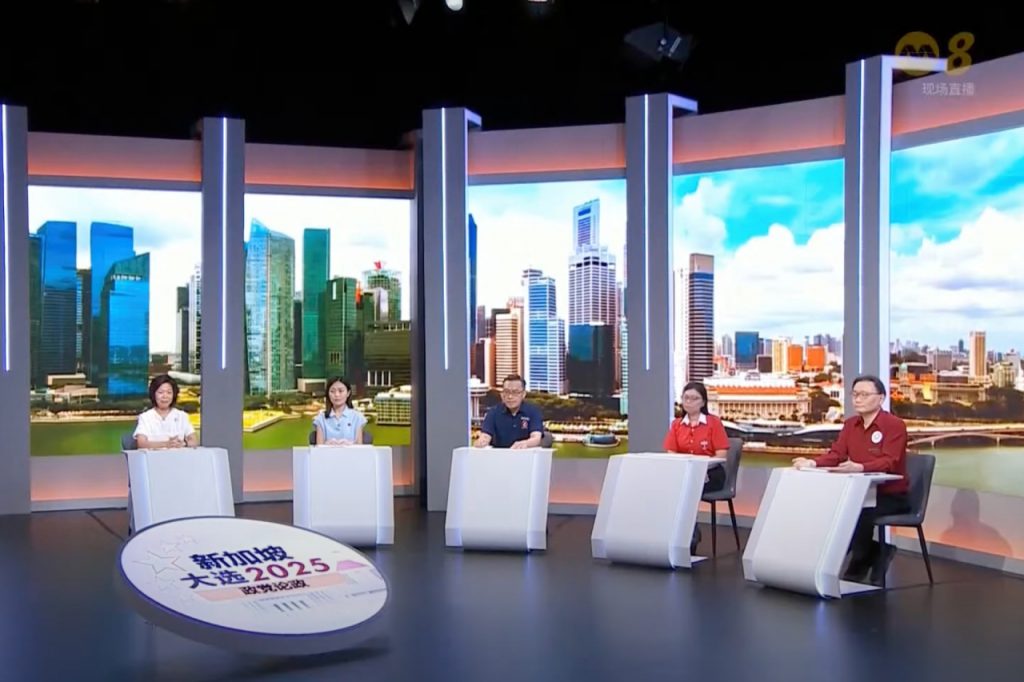
Consolation prizes: Eileen Chong, Hazel Poa, and Pang Heng Chuan
Kudos to all three candidates for holding their own despite making the occasional blunder—some more than others. But honestly, I paid more attention to Michael.
Participation prize: Michael Fang
Oh, Michael. Where should we start?
Amid a pretty bland forum filled with repetitive talking points, Michael was easily the most entertaining candidate of the night. Some highlights include his enthusiastic self-introduction where he quipped in Mandarin: “Ai guo (love country), ai min (love people), I am Fang Ai Min!”
He also lapsed into English, blurting out “Parking can be free!” at one point when discussing ways to reduce the cost of living for HDB residents.
An adorably awkward moment also ensued at the closing of the programme, when he seemed to catch host Tung Soo Hua off guard with his suggestion for everyone to bow to the audience.
A Mandarin Q&A is understandably daunting for someone who appears to be more comfortable speaking English. So thank you, Michael, for showing up and giving us a show to remember.


